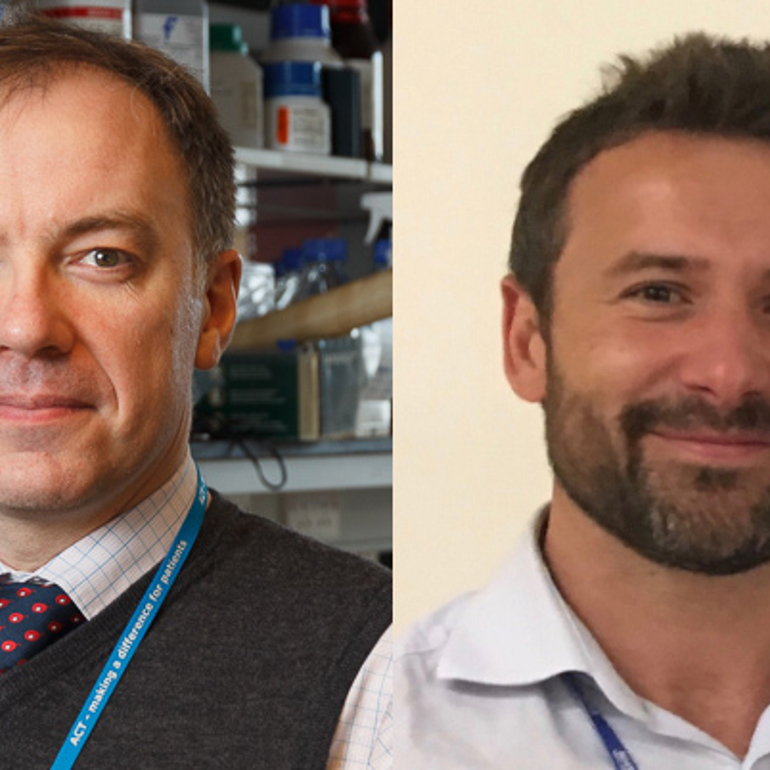Thank you for finding the time to talk to us. Tell us more about this disease.A pneumothorax occurs when a lung deflates because of an air leak, causing pain and breathlessness. This can sometimes occur in patients with no obvious underlying lung disease, and when this happens, it is known as a primary spontaneous pneumothorax (PSP). This is a rare occurrence, however in around 10% of these cases, another family member had suffered a pneumothorax, which leads to a diagnosis of familial pneumothorax.
Familial pneumothorax can be caused by a variety of inherited syndromes, such as Birt-Hogg-Dubé syndrome, also a cause of renal cancer, and several diseases that affect the body's connective tissues, such as Marfan, Loeys-Dietz and vascular Ehlers-Danlos syndromes.
Why is it important to have a collaborative network for familial pneumothorax?
Familial pneumothorax is a rare and not straightforward diagnosis. Without a dedicated service only a small minority of these families are diagnosed and receive the correct, personalised, treatments.
In Cambridge, we’ve had a specialist pneumothorax clinic and pneumothorax genetics MDT since 2008 (1) During that time, the number of out of region referrals has steadily increased, so in discussion with Dr Ayesha Ali, medical advisor at NHS England’s Highly Specialised Services, we developed the idea of providing a national Rare Disease Collaborative Network (RDCN).
By pooling resources and expertise in a network we can diagnose patients faster, deliver treatments more quickly, conduct research and work in partnership with other experts for the benefit of our patients.
How does the network benefit patients?
There are now two centres in the Familial Pneumothorax Rare Disease Collaborative Network, which is the first and only of this kind: Cambridge University Hospitals NHS Foundation Trust (CUH) and Queen Elizabeth University Hospital, Glasgow.
Before the network was established, patients suffering from a pneumothorax are usually cared for by respiratory medical teams. If they suspected an underlying genetic cause, they could either contact their local clinical geneticist or the Cambridge Pneumothorax Clinic informally. The new RDCN formalises the process and also creates shared resources, such as a national online Multi-Disciplinary Team (MDT).
Thanks to this collaboration, patients’ cases can be brought to the attention of the network, where they will be discussed by a team of experts from each centre. In turn, these will provide local teams with guidance around diagnosis and management, which will be delivered locally.
Also, if necessary, patients may also be seen at one of the two hospitals, in person or by video link. There will also facilitate delivery of appropriate diagnostic tests of the heart and lungs, and also genetic. The two centres will direct genetic counselling for those concerned about how their condition may impact on their families.
We met and began to talk about familial pneumothorax services and how we could improve them back in 2017, at an event at the Royal College of Physicians & Surgeons of Glasgow we both attended. It was therefore natural to begin with our two centres as the founding members of the RDCN, hopefully to expand further in the future.
What do you think are the best improvements that this network brings to patients and healthcare professionals?
Our original pneumothorax clinic and pneumothorax genetics MDT, comprising respiratory, clinical genetics and thoracic radiology consultants, already has more than 10 years of experience.
The work we have done as part of the 100,000 Genomes Project led to the first NHS gene panel for familial pneumothorax being available via the National Genomic Test Directory (August 2020) (2). This expertise is now readily available for any respiratory team suspecting a familial cause for pneumothorax. In addition to improving clinical care, this will also facilitate research into this condition.



